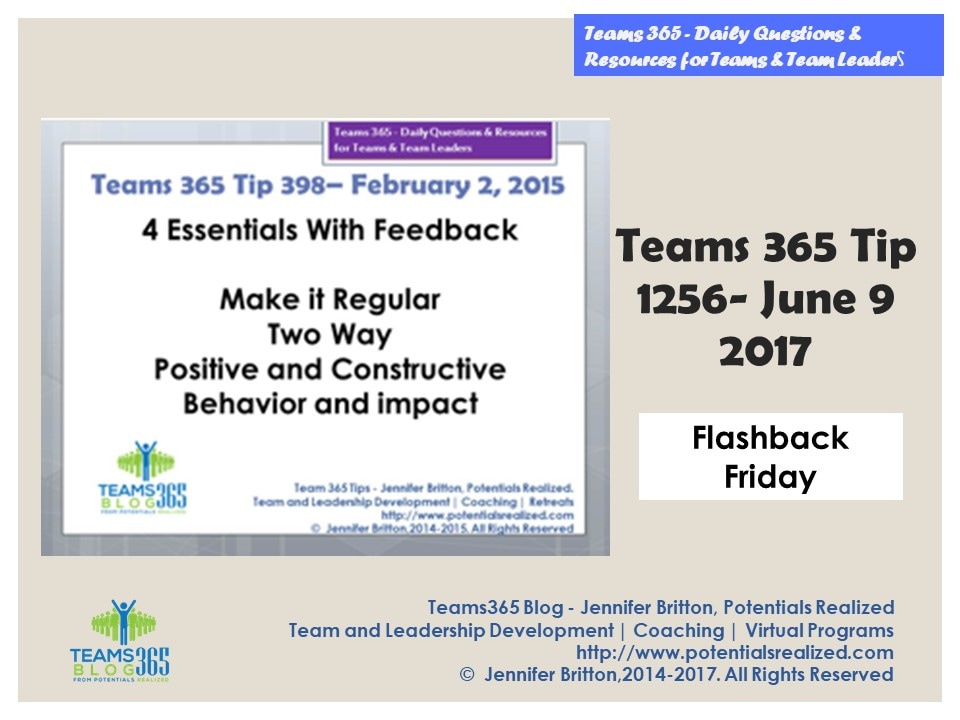Feedback is a critical skill set for any team leader, and many experienced and new team leaders are uncomfortable providing feedback. Today's post covers four essential tips in providing feedback:
1. Make it regular - Feedback should be specific and timely and many team leaders wait until "performance review time" to provide any feedback. As I've been writing regular one-on-ones are a best practice. Click here to read what I've written on one-on-ones over the past year.
2. Make it a two-way street - Feedback from our team members is also critical and it can be useful to ask for feedback about your own performance when giving it. This helps you to know more about the type of support your team members need, enabling you to re calibrate as you go.
3. Make it both positive and constructive - Different organizations have evolved different cultures around feedback so consider this third point in light of what will work best in your organization. In some places, feedback is always positive, shying away from constructive feedback. When everything is "great" we fail to see what isn't working as well. In today's business context, the inability to see the downside can lead to major problems, and even business closure.
In other locations, feedback may only be given when things go wrong. Positive feedback and letting people know that they are doing a good job is also important for motivation and engagement. As many organizations assert "Catch people doing it right!".
4. Focus on behavior and impact - When providing feedback make sure you are focusing on the behaviors observed in the situation and you connect it with the impact that behavior had. It's important to support team members in recognizing that feedback isn't an attack on their personality, but is about the performance behavior they utilize and the impact (positive or negative that it has).
Describe the behavior as if you were seeing it again - what were the things observed? What happened next? What was the impact?
Working together to notice patterns and identify impact can be useful. As team members become more aware of their actions and behavior they can also self-monitor and self-adjust. For example, if we don't ever receive feedback that not enough salt is being used in keeping sidewalks clean outside the office which is leading to several "near misses" with slips and falls, the team member may think that they are doing a good job by conserving resources. This example is selected to make it really explicit as often our messaging to "conserve resources" or "Do more with less" can lead to negative performance issues. Feedback on impact (or consequence) is essential.
This week consider what focus you want to ahv on feedback. Is it time for another 1-1 with your team?
Potentials Realized | Coaching Team Leaders
Team and Leadership Development | Coaching | Retreats.
Follow us on Twitter @Teams365
Phone: (416)996-8326
Connect with us to be the first to know more about launch events around my newest book - Effective Virtual Conversations - coming out later this summer.

 RSS Feed
RSS Feed





